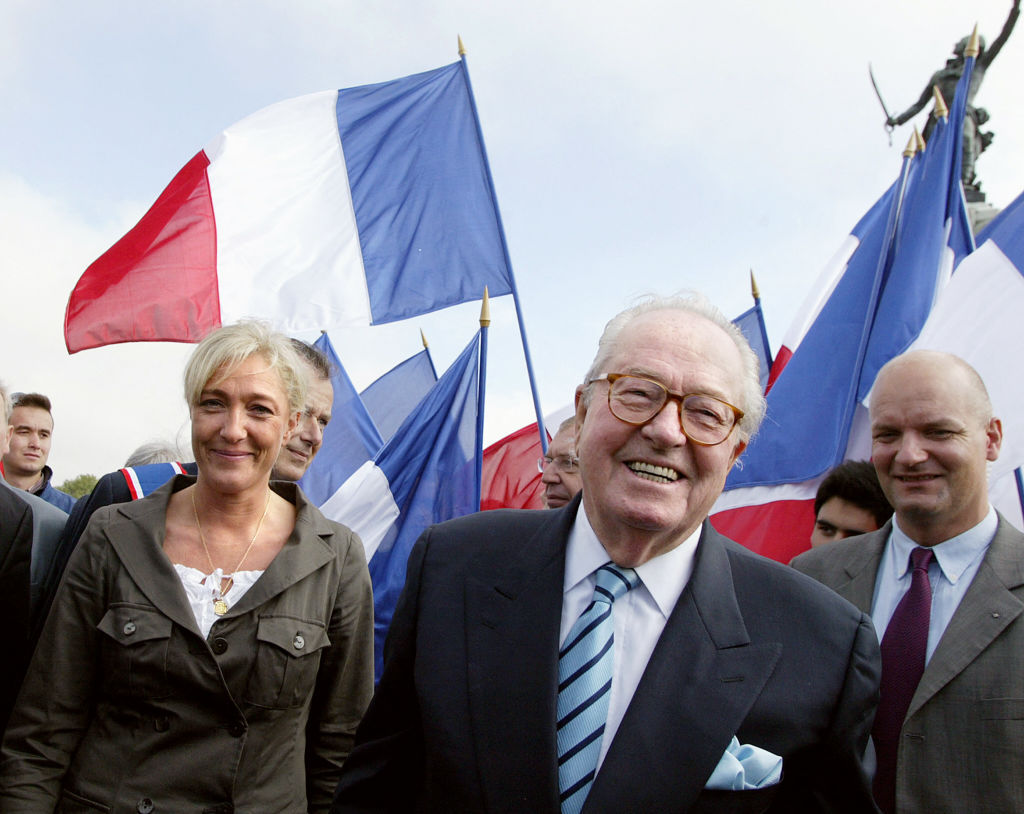Retrospectives on Jean-Marie Le Pen highlight his most infamous racist and antisemitic statements but almost uniformly overlook a key dimension of his politics: anti-communism. Yet this has long been a decisive focus for the far right, inseparable from its overall struggle for the preservation of a white, Western civilization. Anti-Marxism has often been the common denominator of reactionary groups, as is well embodied by Le Pen’s own career of alliance making.
Throughout his life, whether in Vietnam or in France’s National Assembly, Le Pen was convinced that he was fighting Bolshevism and its avatars, be they student unionists, Algerian independence fighters, or left-wing party activists. Le Pen never lost sight of his main objective: to tear down his supreme enemies, namely the French Communist Party (PCF) and the Soviet Union. For some seventy-five years, Le Pen was a red-baiting anti-communist.
Jean-Marie Le Pen was born into a modest Breton family. His family was neither fundamentally extremist nor involved in Nazi collaboration. It was when he went to Paris in 1948 that the young student became politicized. A fighter by nature, Le Pen quickly fell in with the most right-wing student circles, for a time associating with Action Française. This far-right league, with its roots in nineteenth-century revanchism, survived the purge of collaborators but lost its vast prewar cultural influence.
Le Pen thus instead devoted himself to student associations and purging left-wing union members, even if this meant frequent violence: “When I arrived in…
Auteur: Adrian Thomas

